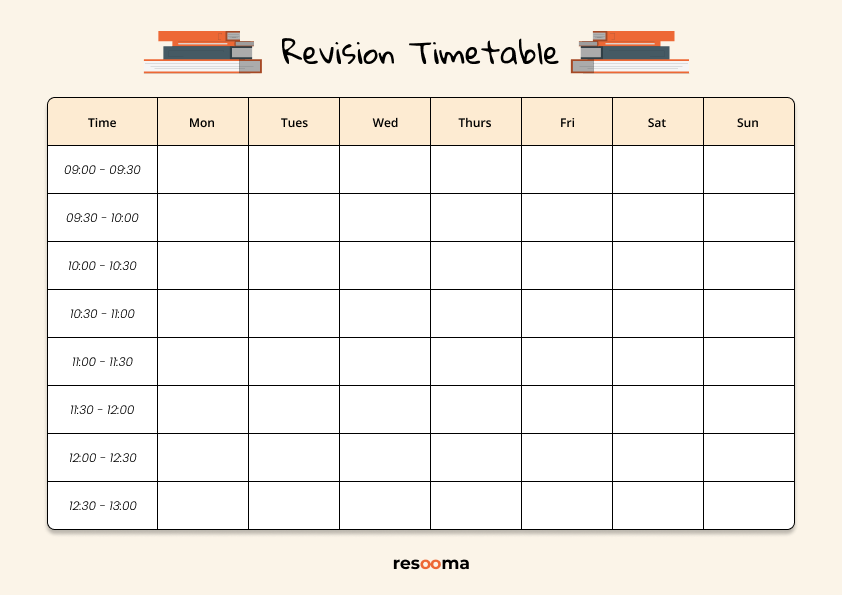Blogs > Living in London > How to Revise Effectively for University Exams | Revision Timetable Template
 - minute read
- minute read
With exam season just around the corner, students everywhere are looking for the most effective tips for revising for university exams, so we’ve compiled a list of the best revision techniques for university exams.

Navigate this article about how to revise effectively for university exams:
When it comes to preparing for university exams, timing is everything. Starting your revision early, ideally several weeks to months before your exams, allows you to gradually review course material, actively engage with key concepts, and identify areas needing more of your focus. Around 1-2 months before exams, intensify your efforts by practising with past papers and structuring your study schedule. During the final 2-4 weeks, focus on consolidating your understanding, using active learning techniques, and addressing any weaknesses. As the exams draw closer, aim to complete major revision tasks at least a few days beforehand to avoid last minute university revision stress. Finally, in the days leading up to exams, prioritise self-care, trust in your preparation, and approach each exam with confidence. By following this timeline and maintaining a consistent revision routine, you’ll be well-equipped to tackle your university exams with ease.
Finding the best revision technique for you can be tricky and may take some time. Some students are visual learners and prefer to revise and learn by watching videos, whilst others find writing more helpful. Either way, we have compiled a list of the most effective university revision techniques to help you get the perfect grades!
We all know that some students love to leave revision to the last minute which can be stressful, so we’ve compiled the top 5 tips to help relieve some of that revision anxiety:
To save you time creating a university revision timetable, we’ve created a free downloadable revision timetable template for you, so all you have to do is fill it out and start revising! Download it 👉 here 👈

Whilst it is top priority to revise and study for your university exams, it is also just as important to look after yourself. Exam season is a highly stressful and anxiety-inducing experience and can be a hard time for many students, so it’s super important to find time to relax in between all the last minute cramming. You have permission to take breaks regularly, go on a walk for fresh air and to stop revising altogether if it’s all getting a bit much for you. Remember to also eat healthily, exercise and get enough sleep. Nothing is more important than your mental and physical well-being.
As we know some people prefer to watch videos rather than read, here’s a short video that summaries this blog post about how to revise effectively for university exams 👇
Or watch our Youtube video all about how to create the best revision timetable, using our revision timetable template!
Already sorted your house but need to set up bills? We can help with this too – we set up and split utilities for you. Get a free quote for your utilities here.



All your utility bills in one monthly payment, split between housemates
Get a quote


All your utility bills in one monthly payment, split between housemates
Get a quoteFinding his article helpful? We’ve got plenty more helpful articles on there way. Join our Savvy Sunday mailing list